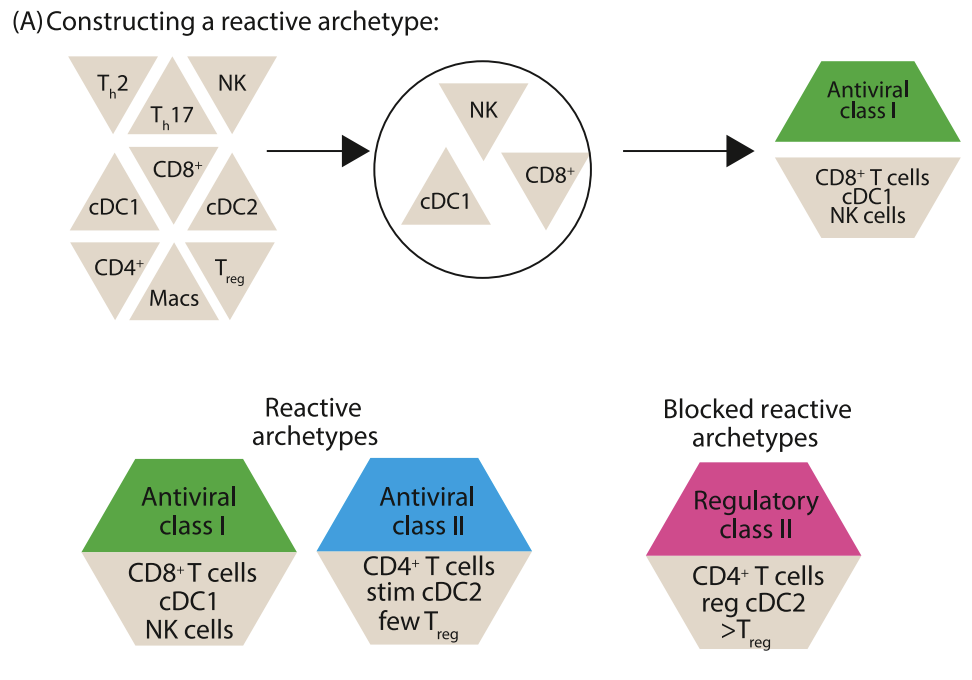
Responsiveness to immune checkpoint blockade (ICB) therapy in cancer is currently predicted by disparate individual measures – with varying degrees of accuracy – including tumor mutation burden, tumor-infiltrating T cell densities, dendritic cell frequencies, and the expression of checkpoint ligands. We propose that many of these individual parameters are linked, forming two distinct ‘reactive’ immune archetypes – collections of cells and gene expression – in ICB-responsive patients. We hypothesize that these are ‘seeds’ of antitumor immunity and are supported by specific elements of the tumor microenvironment (TME) and by actions of the microbiome. Although removing ‘immunosuppressive’ factors in the TME is important, understanding and parsing reactive immunity is crucial for optimal prognosis and for engaging this biology with candidate therapies to increase tumor cure rates.